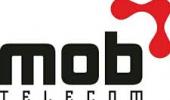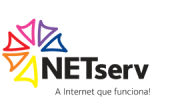VoIP Group in BNAmericas
Miami-based Internet telephony software company VoIP Group is betting that operators and companies will increasingly see Internet Protocol telephony (VoIP) as the best way to expand operations geographically, and as an option clients are now demanding that their operators to provide. BNamericas spoke this week with Alfredo Bellagamba, the newly appointed Latin America vice president for VoIP Group, about the potential of this technology.
BNamericas: Where do you have operations in Latin America?
Bellagamba: Headquarters are in Miami, and we have offices in Argentina, Chile and Brazil. We are doing business in all these countries, as well as Central America. We are studying Mexico right now, and are in talks with distributors there. It's the second largest economy in Latin America, so it is important.
But, every country has its own regulations and competitive context. Chile clearly is the most advanced country in Latin America in terms of competition and infrastructure, as they deregulated the market there in the early nineties.
Argentina deregulated telephony in 2000 but privatized the sector in 1991 and has had three years of intense competition, while in Brazil they privatized the sector in 1998 and they split up the country into three regions with three incumbents, and a long distance operator.
Around two years ago, [Brazil's regulator] Anatel started offering SCM licenses - multimedia communication services - and STFC licenses to new small operators.
Today there are almost 100 companies that have SCM licenses, allowing an operator to offer voice, data and video services, for a [virtual private network] IP-VPN. They can originate calls within a VPN and terminate calls on the public network, or vice versa.
This way, companies can pay an operator that has an SCM license for long distance telephony, without paying an incumbent operator. SCM operators can't originate calls on the public network, go through an IP-VPN, and terminate on the public network.
The STFC license is the same license the incumbents have. The distinction with SCM is that they must comply with universalization requirements. One of our STFC clients, Transit Telecom, has invested more than 15mn reais and has purchased our platform to offer prepaid and postpaid corporate services for long distance, via calling card for prepaid services.
BNamericas: And how does VoIP Group help these new small operators?
Bellagamba: They have their own [points of presence] POPs and technology, and are now incorporating IP. When Transit Telecom was born, they didn't have IP. Now they are expanding their networks using VoIP. Both the incumbents and the new small operators are understanding now that expanding their networks via voice-over-IP is much cheaper than to do it via the classic network.
In January 2006, according to local regulations, operators will be able to invade the geographical concession areas of their competitors. Voice over IP is the cheapest way to take advantage of this, as you can bypass interconnection costs by entering the competitor's region through the Internet.
We attack two sectors with potential: the incumbents and the emerging carriers. We are having a lot of success with the emerging carriers.
As for the incumbents, they need to incorporate a voice over IP platform in order to offer value-added services. Also, the value per minute of telephony is going to keep dropping, and they need a way to reduce costs. Brazil has some of the highest telephony rates in the world. Voice over IP permits new entrants to the market quicker and more economically, interconnecting locally with the incumbents.
BNamericas: How many clients do you have in Brazil?
Bellagamba: Three, and we expect to sign three more within 60 days.
BNamericas: What percentage of IP-VPNs in Brazil offer voice services?
Bellagamba: IP-VPNs traditionally offered just data and video. Voice is something that became available only about two years ago in Brazil for IP-VPN. Incumbents are offering corporate voice over IP services for their clients that have long distance subsidiaries.
BNamericas: And what does your software do exactly?
Bellagamba: Our platform allows operators to manage, control VoIP networks and services and bill them in real time. Either in mixed - IP/PSTN (switched network) situation or in a pure IP network.
BNamericas: Why is voice over IP not practical for local telephony?
Bellagamba: You could use voice over IP for local telephony, if you have an IP address at the end of the point last mile connection. You can also do this via wireless technology. The incumbents could sell residential clients an IP telephone, which connects to its local IP network. They can use our software to bill clients in this case.
BNamericas: What sort of equipment does an operator need in order to offer services over IP?
Bellagamba: They buy or rent gateway switches from gateway supplier partners. The incumbents have no option but to offer IP-VPN services to their clients, because if they don't, the clients will either create their own IP-VPN, or they will contract another operator that will offer the service, and the incumbent will lose that client. IP-VPN is spectacular for value-added services as well. The quality of voice over IP is now equal to regular voice services.
BNamericas: And who pays the ISP in the case of voice over IP?
Bellagamba: Many of the incumbents have their own ISP, or they partner with a data company.
BNamericas: At some point we will all use voice over IP exclusively, for long distance services?
Bellagamba: Yes. It's amazing the worldwide annual growing rate of the international outgoing calls over IP traffic and many analyst have estimated it will overcome PSTN international outgoing traffic. It is already happening. For example [US-based voice over IP company] ITXC is here in Brazil. They are terminating complete voice over IP calls from other countries.
BNamericas: What about the prepaid long distance calling card business?
Bellagamba: The fact that there is little competition in Brazil [means] there is an opportunity to make prepaid calling cards for corporate and residential clients at a much more economic price. Incumbents and the new small operators have started projects to sell these for domestic and international telephony.
BNamericas: Why would the incumbents be interested in this business?
Bellagamba: In order to add new services and also to compete with the new entrants.
BNamericas: Who are your competitors?
Bellagamba: We are the first entrant to the Brazilian market, without a doubt. And on the international level, we are also pioneers. We have been in the business since 1998. Our competitive advantage is specializing in voice over IP software only, not in hardware as well. We are also being aggressive developing in Wi-Fi services where we see great potential.
BNamericas: Whose software do the incumbents use today, if they are not your clients?
Bellagamba: Some have developed their own in-house software. But they are analyzing which platforms to buy now. We are very interested in helping them. It will be easier for them to outsource software to us, because the software has to be updated and it's expensive to maintain software development. Voice over IP software is not the operators' core business.
BNamericas: Where do you develop your software?
Bellagamba: Our software is developed within Cordoba Tech, a national tech hotspot in Argentina, equivalent to Ireland or Israel. They export technology to the world. They bill US$30mn annually. Why? Because they have a very important tech universities. Our VP of Technology is the president of Cordoba Tech. Motorola is there, Intel, Microsoft, all are there. The quality of the engineers is very good and the cost of development is between 15% and 20 % what you pay in the US.
BNamericas: Who are the investors in VoIP Group?
Bellagamba: The company started up in 1998, with US$600,000 seed capital from American angel investors. In 2000 the company received US$3.5mn from Web.de, a German web-to-phone company similar to Net2Phone in the US - you buy credits, access a web platform, and make a call with a headset to any place in the world.
Web.de took off during the peak of the Internet bubble, when web-to-phone traffic was enormous. Web.de was buying technology from VoIP Group and we deployed its order to do the web-to-phone platform, over IP. VoIP Group was a pioneer at the time.
In March 2000 the company signed a deal with [US space engineering company] NASA. They competed with 70 suppliers for that contract. I was with [US venture capital firm] ATG Ventures at the time, and we were looking to invest in Latin American tech companies. We saw the news about the NASA contract in the papers in Miami, and we went to visit Cordoba Tech. In December 2001 ATG Ventures invested US$4.5mn in VoIP Group.
BIOGRAPHY:
Alfredo Bellagamba joined VoIP Group Inc. in early 2002. Previously he worked with Edward Perry at ATG Ventures, the venture capital fund that controls VoIP Group and evaluates Latin American tech projects. In 1998 Bellagamba was original partner and co-developed LatinStocks.com, a Latin American financial portal. In August 1999, he sold a controlling stake of LatinStocks to The Exxel Group and a minority stake to AOL Latin America. Bellagamba holds an MBA from IAE Escuela de Direccion y Negocios and a CPA from Rosario National University.
ABOUT THE COMPANY:
VoIP Group's software allows companies to bill for and track voice over IP calls. The company targets telecoms operators, calling card companies, call centers, corporations, broadband service providers, and websites.

































































